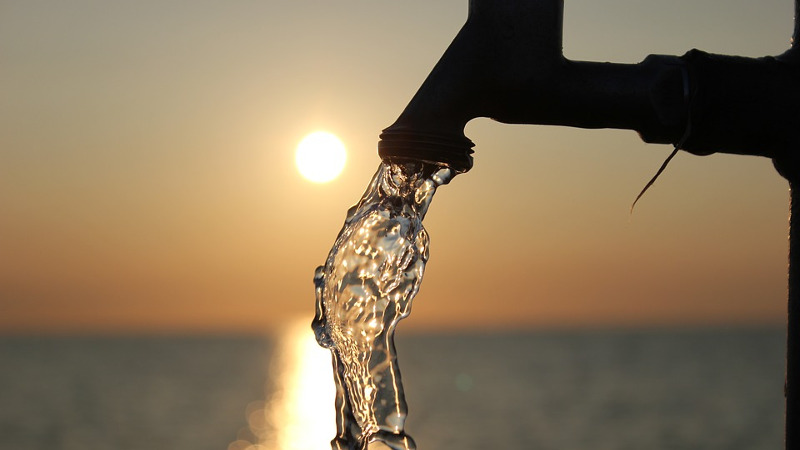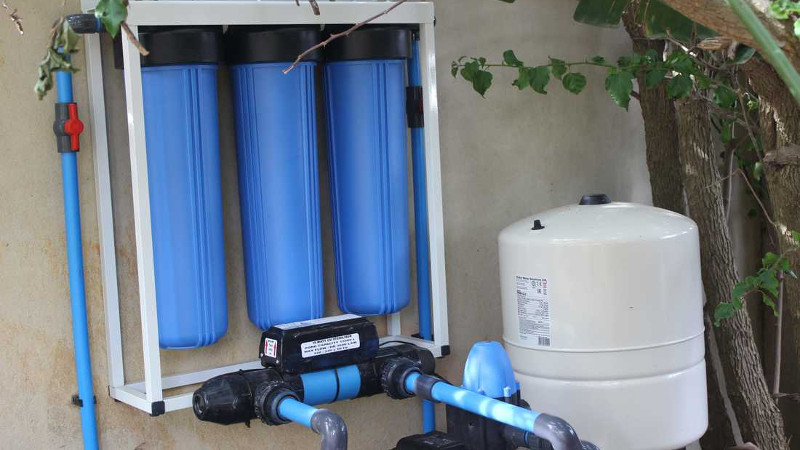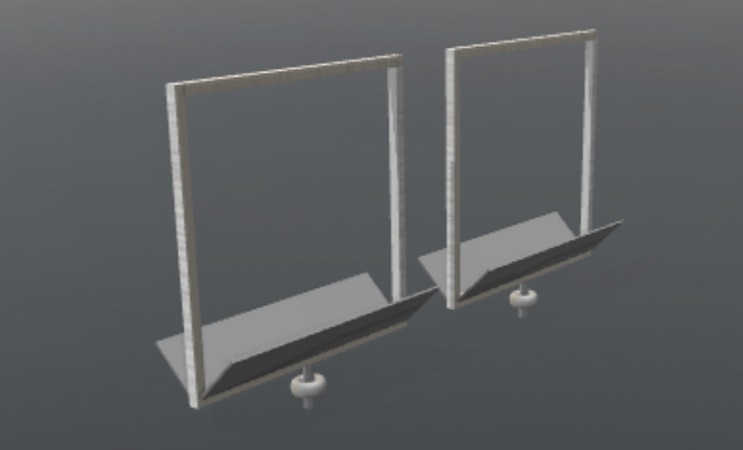AI chat is no longer just about faster answers or conversational tone. Search.com, a division of Public Good, has launched a generative AI search…
Can these four entrepreneurs save Cape Town from city’s water crisis?

Cape Town’s Day Zero is closing in. Dam levels are currently at 26.3%. When levels drop to 13.5% the municipality plans to switch off taps. Might this crop of innovators then be able to help the city to tackle its water crisis?
The city last week published contingency plans for Day Zero — while Western Cape premier Helen Zille has said she is looking to partner with the private sector to cope with Day Zero.
Here then are four innovators that could help the city to reduce its water usage:
Bridgiot
Founded in 2015 by MJ Booysen, this Stellenbosch-based internet of things (IoT) startup has developed an innovative smart water meter that is currently active in 64 schools in the Western Cape — with projected water savings estimated at just under 16.4-million litres.
Bridgiot‘s Dropula smart water meter enables users to track water consumption and can detect and notify users of leaks.
The startup’s schools initiative is part of the Smart Water Meter Challenge, that the startup is running with the Department of Education, Shoprite, Pragma, Cape Talk , Stellenbosch University and Checkers. The campaign aims to get 350 schools in the province to save water.
Bridgiot, Greenchain Engineering, Airwater and the H20 Catcher have developed solutions that either save, produce or clean water
The company’s operations manager Jurie Johannes Erwee says the startup’s smart water device shows high resolution data of current consumption at 10-minute intervals.
The meter — which is provided as a service — costs under R1000 a month to run.
Erwee says the startup does not currently have a consumer product available as its current aim is to service schools first, however he says the startup will likely launch a consumer-faced product in the second half of the year.
“We found that’s the place where we have the widest impact,” he says, commenting on the startup’s focus on schools.
Greenchain Engineering
Greenchain Engineering business development manager Josh Hutton says the startup is “struggling to keep up with demand” which he says has steadily grown since last year.
The startup, which was founded in 2016 by Styger Kruger, has developed a rainwater harvesting system, greywater system and a borehole filtration system.
Greenchain Engineering is currently focusing on the rainwater harvesting system (pictured below) and a borehole filtration system. The two systems are retailing for between R30 000 and R70 000.
“Demand is currently heavier than what our current capacity is,” says Hutton.
He said the startup has set up meetings with the City of Cape Town and the Stellenbosch municipality to explore “application of the solutions at a larger scale”.
The startup is currently based at Stellenbosch incubator Launchlab and is also looking at incorporating IoT functionality into its systems, but Hutton says at the moment all its customers are interested in is getting water — not the tech.
H20 Catchers
Cape Town innovator Grant Vanderwagen’s innovative, but rudimental solution is to turn fog into water through the H20 Catcher. The concept (pictured below) stems from a television programme he once saw which featured fog farms in Peru.
Vanderwagen last year approached the City of Cape Town and was told to detail the concept better. However, he says since then he has not had any feedback or interest in his project from the city or the provincial government.
Read more: Former ‘beach bum’ aims to turn fog into water to address Cape crisis
He adds that he is currently in talks with an interested party — who he could not disclose — to set up a pilot project in Paternoster, 145km north of Cape Town.
The H20 Catcher is expected to cost under R7000 per unit to produce, and is expected to produce about 10 000 litres a month — dependent on weather conditions. He expects the Paternoster pilot to serve as proof of concept and to provide more research into the solution.
Airwater
Airwater CEO Ray de Vries (pictured below) believes his Durban-based company’s solution — which is basically a machine that produces water from the condensation in air — can help solve Cape Town’s water crisis.
De Vries was speaking yesterday from just outside Shanghai in China where he was purchasing orders for the smaller of his two machines that can produce 32l a day.
“We are selling 20 to 30 machines a day and those are going to people who are desperate and don’t have the right information, or have been given the wrong information, or think that the water is going to run out this afternoon or tomorrow or whatever, but its seen as the only answer,” he says.
“In my opinion. It’s the only answer, because where else do you get water from? All the other measures of saving water, which have to be done are vital, but making water is where the shortage is, fortunately we have that,” he says.
Read more: Is Durban man’s Airwater solution to Cape Town’s drought really that water-tight
Read more: Cape Town bottling plant takes on dams crisis by making water from air
He says the company has had to extend the number of shifts at its Shanghai factory from one to three to cope with demand.
He currently receives an average of 200 queries a day and has 300 of his larger machines (which can produce 2000 litres of water a day) on order while the company has sold or pre-sold over 900 small machines since September last year leading up to April.
“Obviously we’re making a lot of money, and you know it would be silly if you didn’t at this moment in time,” he says.
“But it’s more than money — it’s a case of us sitting and frustratingly watching the city fighting over who is in charge, as opposed to worrying about the poor person in Khayelitsha or Bishopscourt for that matter and they (the city) have no idea as to what is happening,” he says.
While he says hasn’t been approached by the City of Cape Town, however he adds that last year, Zille did make enquiries about Airwater’s solution.
Read more: Dam levels drop 0.9% as Cape Town struggles to save water
Read more: Dry Bath founder’s water saving proposal hits wall with city, government officials
Featured image: RayMark via Pixabay (CC0 Creative Commons, resized)
Editor’s note (31/01/2018): Following the publication of this article Ventureburn received an email from Bridgiot’s operations manager Jurie Johannes Erwee saying that a R1140 offer for the company’s smart meter (that appears on the company’s website) is no longer available as it was part of an initial trial the company did.
Furthermore he noted that the target for the Smart Water Meter Challenge is in fact 350 — as the target of 100 is just the commitment that Shoprite Checkers alone has pledged to support. The article has been amended to reflect this.





